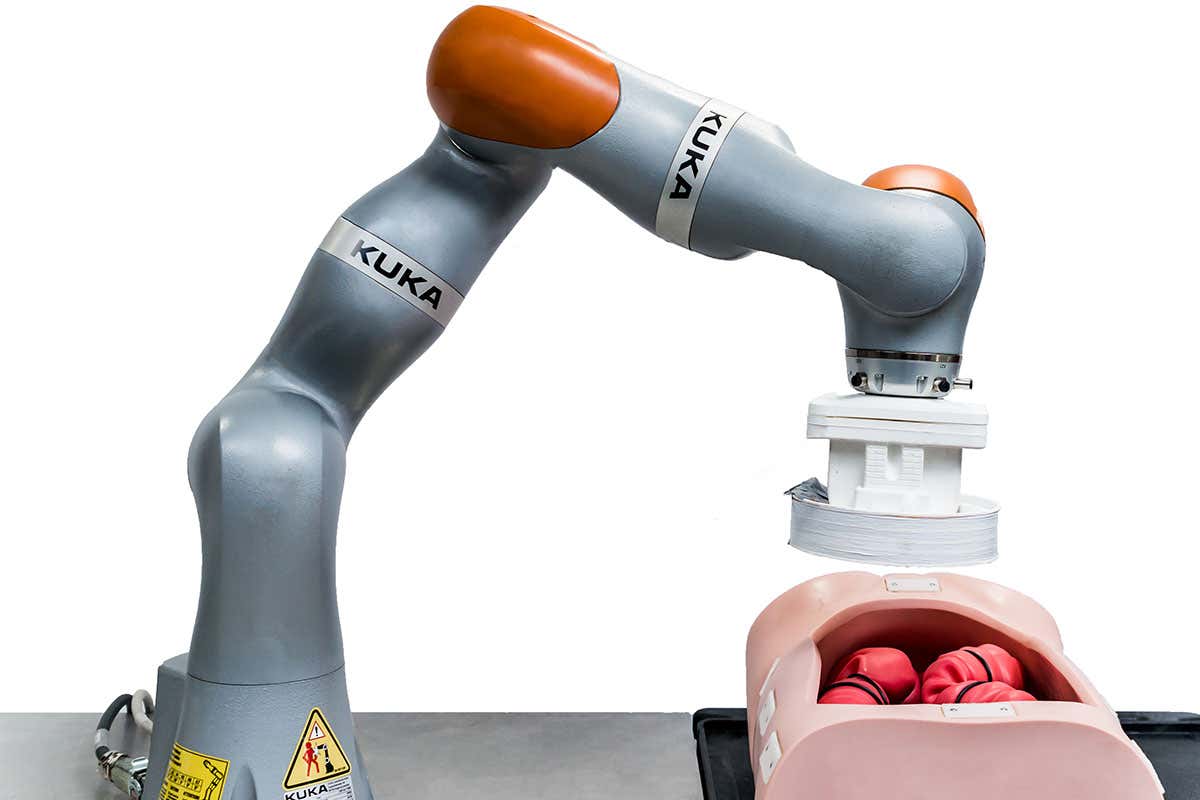
University of Leeds
A robot that can perform colonoscopies may make the procedure simpler and less unpleasant.
Pietro Valdastri at the University of Leeds in the UK and his colleagues have developed a robotic arm that uses a machine learning algorithm to move a flexible probe along the colon.
The probe is a magnetic endoscope, a tube with a camera lens at the tip, that the robot controls via a magnet external to the body.
Advertisement
The system can either work autonomously or be controlled by a human operator using a joystick, which pushes the endoscope tip further along the colon. Valdastri likens the movement to the intuitive motion of playing a video game. The system also keeps track of the location and orientation of the endoscope inside the colon.
Conventional endoscopes currently used during colonoscopies are difficult to operate and require trained specialists. “Gastroenterologists often lose sense of where up, down, left and right is,” says Valdastri.
The robotic system uses an AI that was trained on images of the inside of the colon, which resembles a tube. “The algorithm is looking for a black circle in the middle of the image,” says Valdastri. “That black circle is the direction where the tip of the instrument needs to go.”
The researchers successfully tested this method in an artificial colon as well as in two pigs. They believe the magnetically controlled procedure may be less painful than conventional colonoscopies and could be used on patients without sedation.
The team plans to trial the procedure in five healthy volunteers next year. If successful, it will then be used it to perform colonoscopies in patients with inflammatory bowel disease.
Journal reference: Nature Machine Intelligence, DOI: 10.1038/s42256-020-00231-9
More on these topics: